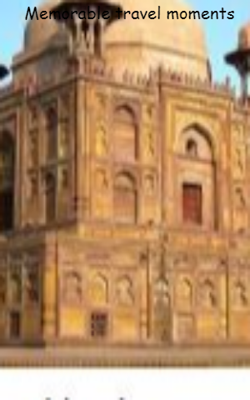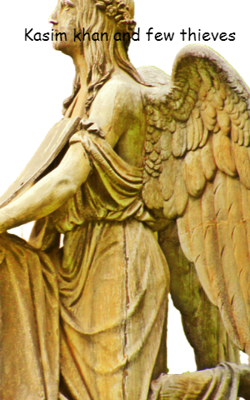Pranab Mukherjee – A gentleman statesman
Pranab Mukherjee – A gentleman statesman


Pranab Mukherjee was born on December 11, 1935, at Mirati village in Birbhum District of West Bengal. After passing matriculation, he studied at Suri Vidyasagar College, Suri (Birbhum) from where he graduated. He subsequently earned an M.A. degree in Political Science and History, and an LL.B from the University of Calcutta. He was an Upper Division Clerk in the office of Deputy Accountant General (Posts and Telegraphs), Calcutta. Between 1963 and 1968, he taught Political Science at Vidyanagar College, located some 30 km away from Esplanade, Kolkata. Also, he worked as a journalist with Desher Dak before entering politics in 1967 with Bangla Congress, formed by Ajoy Mukherjee, splitting from National Congress.
Career in politics
Mukherjee got his break in politics in 1969 when the then prime minister, Indira Gandhi helped him get elected to the Rajya Sabha on a Bangla Congress ticket. The politician from Bengal had a meteoric rise when Ms Gandhi included him in the cabinet as Deputy Minister of Industrial Development in 1973. He occupied many portfolios from then onwards and was a part of the government during emergencies. In 1980, when Congress returned to power, he was made Minister of Commerce, and Steel & Mines, though he was defeated in the election from the Bolpur constituency. He was made Finance Minister in 1982 and served the country with a very good reputation. He was rated as the best Finance Minister in the world in 1984 by Euromoney magazine. Ironically, Shri Mukherjee fell out with Rajiv Gandhi in the wake of Indira Gandhi’s assassination and was dropped from the cabinet in 1984. Gradually Rajiv Gandhi gained control over the Congress and sent Mukherjee to manage West Bengal Congress Committee as its President in 1985. Mukherjee could not manage the affairs very well at that period and was eventually expelled from the mainstream. It shocked him and parted with Congress. In 1986, Mukherjee founded his own party but failed to deliver. However, he returned to Congress a few years later.
Mukherjee continued to hold important assignments in the P.V. Narasimha Rao government as Deputy Chairman, Planning Commission and then as Cabinet Minister. He was a tough taskmaster in solving all political troubles in Congress and the government. He was elected to Lok Sabha from the Jangipur constituency of West Bengal in 2004. Being very senior in the party he was expected to be the prime minister after the refusal of Ms Sonia Gandhi to accept the post of prime minister. But his dream remained unfulfilled. Later Mukherjee accepted Sonia’s choice of Manmohan Singh as PM. In spite of all qualities and justification, the PM’s post remained elusive to him. His previous revolt made him unsuitable for the top job when UPA defeated BJP in 2004. Sonia picked Singh, qualified, dependable and bereft of any political risk. He was not made even the home minister – a post that was very powerful to an intrepid politician. His dream to become prime minister was so astounding and that was expressed in his book, “The Coalition Years – 1996-2012.” He wrote, “I returned with a vague impression that (Sonia Gandhi)
might wish to consider Manmohan Singh as UPA Presidential nominee. I thought that if she selected Singh for the presidential office, she may choose me as the prime minister.”
The presidency was the highest position in Pranab Mukherjee’s long political career. There was a big confusion in Congress about the candidature of Pranab Mukherjee, but knowing well that he would be able to fetch many votes of non-congress parties, his name was nominated. He also worked hard to win allies across parties. Lastly, he was declared elected.
As President of India, his term was really remarkable. He managed the UPA government as well as the right-wing NDA government. Mukherjee struck an exemplary rapport with PM Narendra Modi. Mukherjee ascended even higher when he was bestowed Bharat Ratna in 2019 by the Modi government.
His stint as minister of various departments was praiseworthy. As a junior minister in the revenue and expenditure department (a wing of the finance ministry), from October 1974, he overhauled the revenue department. Over 4000 income tax raids took place under his watch in 1974-75. As Finance Minister, after he took charge in 1982, presented seven budgets and one interim budget. Moving to North Block months after the collapse of wall street, he helmed the economy through the global crisis. But he will be recognized for his several decisions that have shaped India, such as setting up the Exim Bank. Nabard and Regional Rural Banks (Gramin Banks) and formula to share resources with states.
As Commerce Minister in 1995, Shri Mukherjee signed an agreement establishing the World Trade Organization, winning the status of a founding member. It was only possible due to his untiring efforts and full support from the then PM PV Narsimha Rao.
As Defence Minister in 2004, he was part of efforts to work out the India US defence framework and subsequently the nuclear deal.
His relations with other political parties were also very cordial. His belongingness with Assam and other northeast states was admirable. In any issue of North East, respective PMs assigned him the responsibility to resolve it.
Conclusion
Mukherjee had risen above partisan fault lines even as he remained a congressman by conviction. His demise on August 31, 2020, ended an era of the Gandhian School of Thought and Economic Think Tank. His wits to catching Indira Gandhi’s eye to electing as President of the Indian Republic, despite minimal electoral appeal was a herculean task for a village boy of Mirati, West Bengal. Pranab Mukherjee will be remembered as one of the most distinguished all-rounders with encyclopedic intellect to have been part of the government in India.
We salute him!






























































